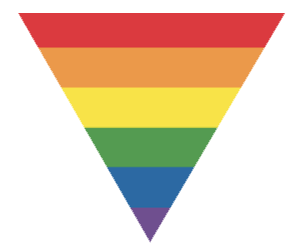by Alicia Niewiatowska, Certified Canadian Addictions Counsellor
Few things are as painful as loving an addict. The feeling of absolute helplessness is overwhelming, threatening to swallow you whole. They barely resemble the person they used to be. It seems your loved one has been taken over – possessed even. It’s as if you are watching your loved one run ar full speed toward a cliff – and they’re ignoring you yelling to warn them they’re about to go over the edge.
I’ve worked in several residential and community treatment agencies for addiction. Helping families cope with their loved one’s addiction is, at times, the most challenging part of my job.
One helpful strategy for families and friends of those suffering from substance use issues is to remember the three C’s: you didn’t cause it, you can’t cure it, and you can’t control it.
Cause
As with most mental health diagnosis, a causal relationship to a definitive origin is hard to find. Most people understand the medical model of treating mental health, but few understand that no real cause has ever been definitively identified. All assumptions as to what causes addiction, or any other mental health concern, are theories. A theory may be a strong estimate, supported by high correlations in scientific studies. But a theory is still just a guess.
Even so, I say to all family loved ones: you didn’t cause this.
To the child who believes if they were just better than their parent would have stopped, it’s not you.
To the spouse who’s been blamed as the cause of the addiction, it’s not you.
And especially to the parents, who blame themselves – you didn’t cause it.
Because if you had the power to start it, you would have the power to stop it. And you don’t–no-one does
Cure
 We hope that our loved ones can be fixed. We hope that medication will take effect and heal them. We hope that addressing core issues will help people move forward. However, most people in recovery will tell you: once an addict, always an addict. That statement is highly controversial. But I won’t be discussing the stigma of labelling, or any other politically charged debates about addiction.
We hope that our loved ones can be fixed. We hope that medication will take effect and heal them. We hope that addressing core issues will help people move forward. However, most people in recovery will tell you: once an addict, always an addict. That statement is highly controversial. But I won’t be discussing the stigma of labelling, or any other politically charged debates about addiction.
The point I am making is this: since there is no definitive cause, there is no definitive way to end an addiction. Therefore, there is no single, cut-and-dried cure.
You can’t cure it.
Control
We care deeply, so we try to help. We try to help them survive this addiction, to help mitigate some of the factors.
However, the families of loved ones have no control over the user’s behaviour.
You can’t control it.
I’ve spoken with countless families, who have done everything they could possibly think of – and then some – to stop the addiction. Families have spoken to me about countless efforts to encourage recovery, with little-to-no effect.
And this is when I say, “If you had the power to control and/or stop the addiction, wouldn’t you have done so by now? If it was within your power to control that other person, would we be speaking today?”.
Because the truth of the matter is simple and excruciating. We can support, we can love and we can set boundaries to protect ourselves from the chaos, but we will never be able to control another person’s behaviour.
If you’re asking yourself “What can I do to support my loved one?”, please schedule an appointment with me.
To learn more or to book an appointment, call 613-868-9642 or email us at info@compassionatesupport.ca
